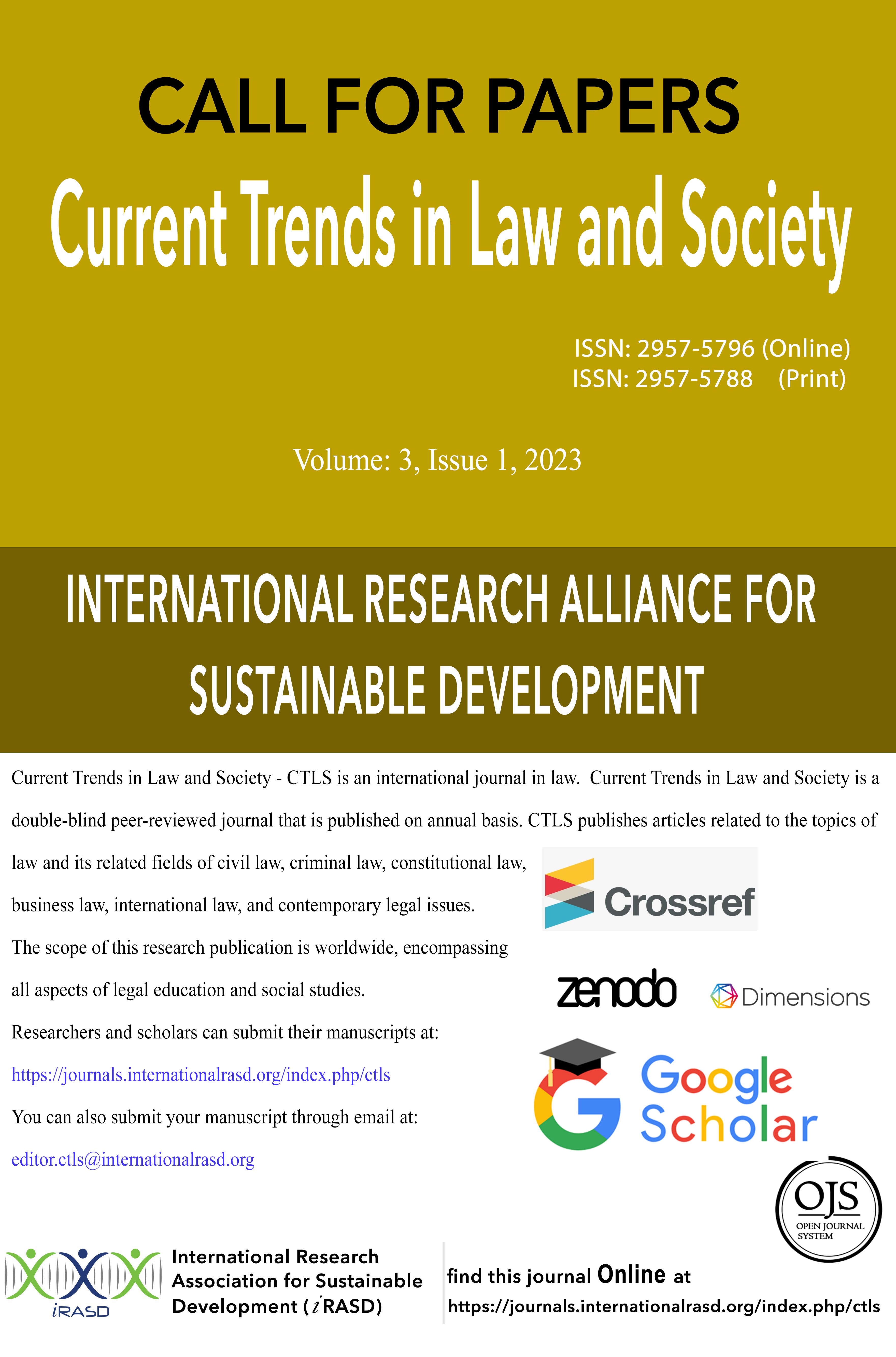Analyzing Practical Application of Writ Jurisdiction and its Legal implications in Pakistan
DOI:
https://doi.org/10.52131/ctls.2024.0401.0043Keywords:
Supreme Court, High Court, Writs, Constitution, Rule of Law, PakistanAbstract
This study aims to stipulate the legal experiences of Pakistan, United Kingdom (UK), and India by mainly presenting the modifying patterns in Pakistan’s legal system and the relatively easy method to maintain the Law of Writs. Therefore, the theories and doctrines presented by these jurisdictions are considered to analyze the differences and similarities in the identified legal environment. To initiate the investigation, the legal frameworks of Pakistan, the UK, and India are examined through seminal theories constituting the principles of law. In that respect, the paper aims at presenting an account of the various sources and background information associated with the formation of each jurisdiction’s law. Moreover, the research also focuses on how the originality of legal theories in the context of Pakistan has been changed or influenced by the condition of this country cultural, socially and politically. It examines how Pakistan has borrowed theories and doctrines from the countries such as UK and India but has tweaked them to fit its needs and dreams. Thus, these deviations give rather helpful information about the progressive legal development in Pakistan as well as its peculiar way of experiencing theory of law. One of the key aspects of this comparison is based on the maintenance of the Law of Writs largely with specific reference to Pakistan’s situation in contrast to the other two countries, namely the UK and India. Thus, the study examines the procedural features, scope, and efficacy of the writs in the jurisdictions under study with the focus upon similarities or differences. Specifically, this research measures the Law of Writs in the legal structure of Pakistan concerning the pursuit of justice and protection of human rights. Reading the state of Pakistan’s legal system side by side with the UK and India, it considers altering phrasing related to changes in patterns and maintenance of the Law of Writs. The research thus gives valuable understanding of the special characteristics of Pakistani law, how this system has developed and the extent of the country’s dedication to personal freedoms. This paper also explores the historical development of prerogative writs in Pakistan and their amalgamation during the British colonial invasion, as well as the formal inclusion of pray writs in the Pakistan’s constitution. This will address criticism of restrictions placed on these writs under the 1962 and 1973 Constitutions and the military’s non-subjection to these constitutional provisions.
Downloads
Published
How to Cite
Issue
Section
License
Copyright (c) 2024 Farah Amir, Shahzada Aamir Mushtaq, Humera Nawaz, Shabnam Shahab

This work is licensed under a Creative Commons Attribution-NonCommercial 4.0 International License.







